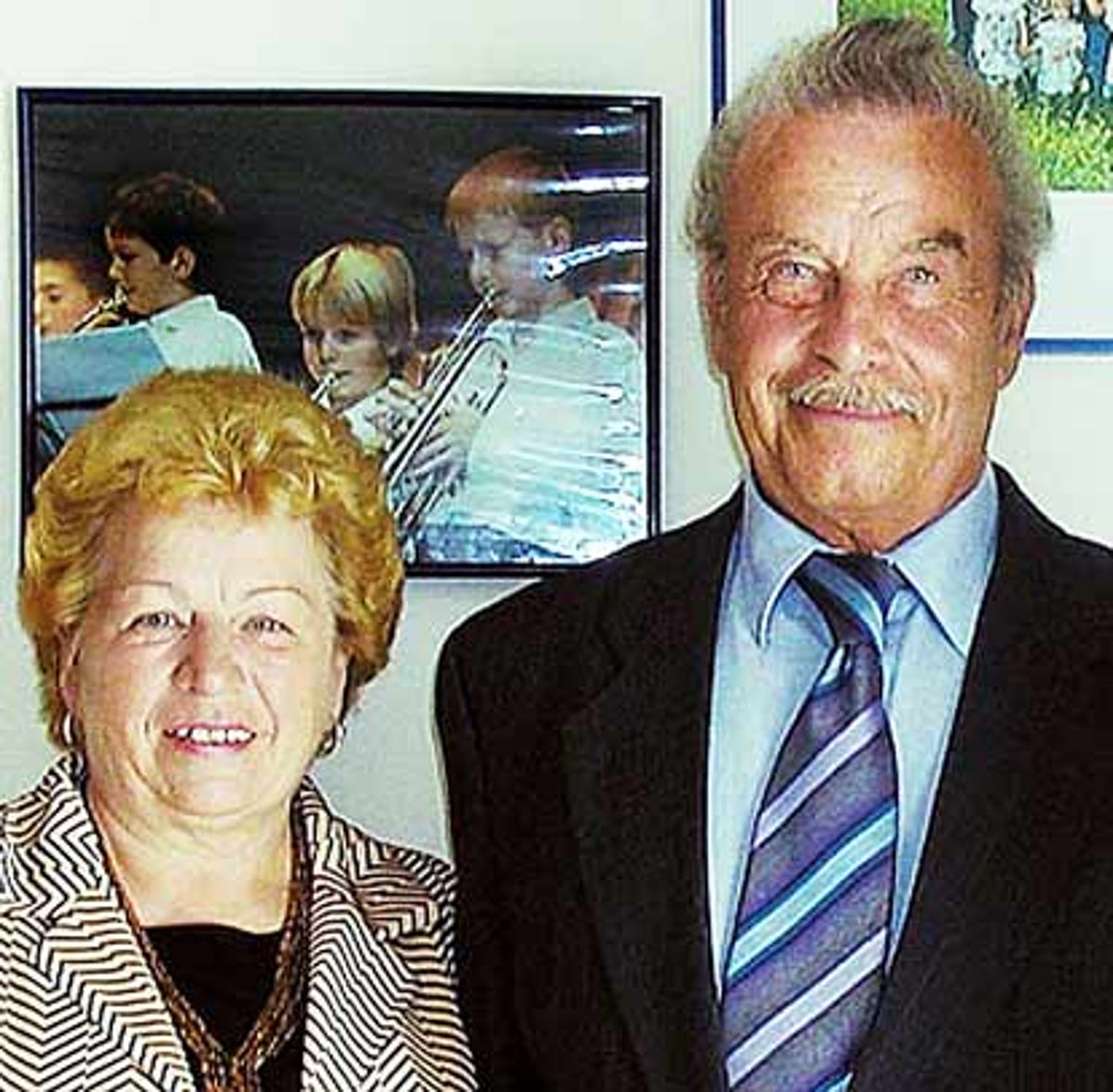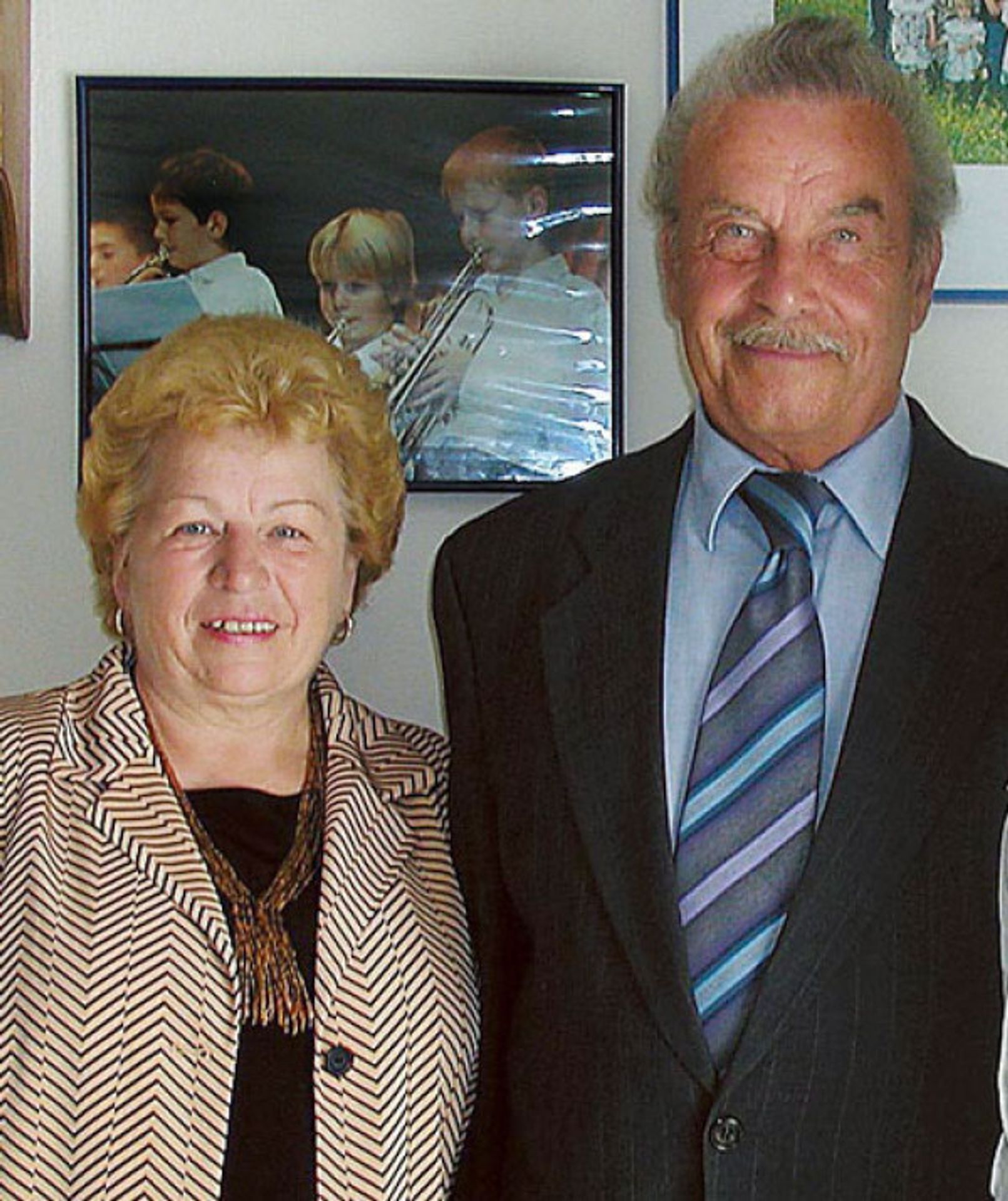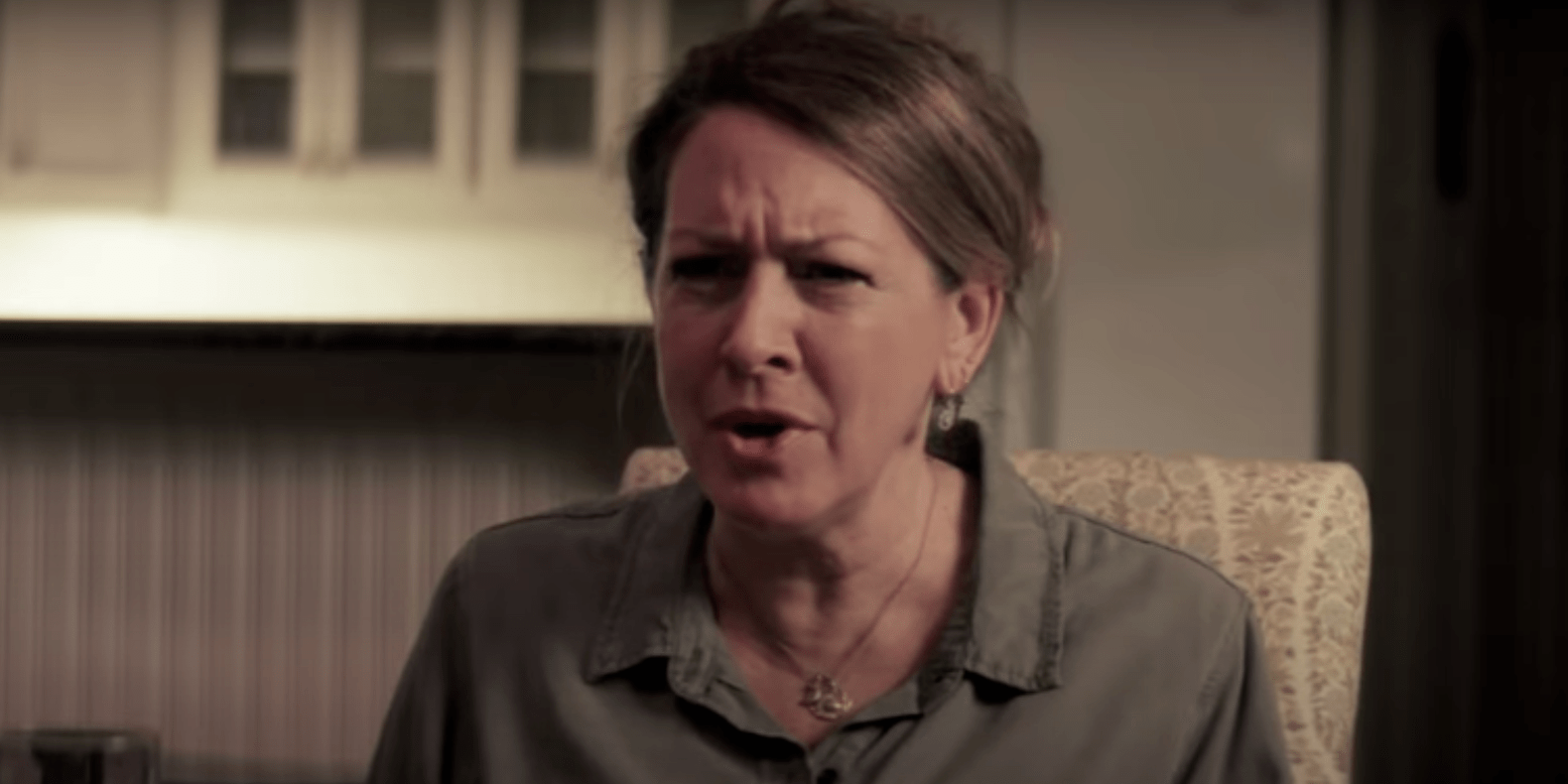The name Rosemarie Fritzl is, in a way, inextricably linked to one of the most disturbing crimes of the twenty-first century, a case that truly shocked people around the globe. Her story, you know, brings to light profound questions about what can happen behind closed doors and how deception can, apparently, hide the most terrible acts. Many people, it seems, have wondered about her role, about what she knew or didn't know, and the sheer weight of the circumstances that surrounded her life.
Married at the tender age of seventeen to Josef Fritzl, she began a life that, unbeknownst to her, would become intertwined with an unimaginable horror. This narrative, actually, explores her journey, focusing on the facts of her life as presented, and how she navigated a reality that was, in some respects, far more sinister than anyone could have possibly imagined. We will look at her life before, during, and after the horrific revelations, trying to understand the human element within such a profoundly tragic situation.
This article aims to shed light on Rosemarie Fritzl, her connection to the notorious Amstetten case, and the public's persistent questions surrounding her awareness. It's a story that, quite frankly, compels us to consider the hidden aspects of domestic life and the incredible capacity for a dark secret to remain concealed for a very, very long time, even under the same roof. So, let's explore the known details of her experience.
Table of Contents
- Rosemarie Fritzl: A Life Entangled
- The Early Years: Marriage and Family Life
- The Unimaginable Deception: Elisabeth's Ordeal
- Rosemarie's Perspective: Unawareness and Belief
- The Police Investigation: An Innocent Party
- Life After the Horror: Moving Forward
- Societal Reflections: Lessons and Conversations
- Frequently Asked Questions About Rosemarie Fritzl
- Conclusion
Rosemarie Fritzl: A Life Entangled
Rosemarie Fritzl, an Austrian woman, is primarily known as the former wife of Josef Fritzl, a man who, as a matter of fact, gained international notoriety for his horrific crimes. Her name became globally recognized when the chilling details of her husband's actions came to light in 2008. It was a moment that, you know, brought a profound shock to people everywhere, forcing them to confront a reality that was, quite honestly, hard to comprehend.
Her connection to this case is central to understanding her public identity. She was, in essence, living a life that, on the surface, appeared ordinary, yet beneath her very home, an unspeakable tragedy was unfolding. This duality, so to speak, is what makes her story so compelling and, perhaps, so difficult for many to fully grasp. The idea that such a thing could happen, right under one's nose, is a truly unsettling thought, and that, is that.
For many, Rosemarie's experience raises questions about perception, trust, and the unseen layers of human relationships. Her life, you know, became a public discussion point, not by her own choosing, but because of the actions of her husband. She is, in a way, a figure who represents the innocent bystander caught in a maelstrom of unimaginable deceit, a person whose world was, literally, turned upside down.
- Charissa Thompson Husband
- Amalia Williamson
- Camilla Araujo Of Leaks
- Kalogeras Sisters House Location Google Maps
- Tom Selleck
Personal Details and Biography
To provide a clearer picture of Rosemarie Fritzl, here are some key personal details and biographical points, gathered from the information available. These facts, you know, help to frame her life story within the context of the larger events that unfolded, giving a basic outline of her existence before and during the discovery of the crimes. It's a way, actually, to put some structure to a very complex human situation.
| Full Name | Rosemarie Fritzl |
| Nationality | Austrian |
| Known For | Former wife of Josef Fritzl, mother of Elisabeth Fritzl |
| Marriage Year | 1956 (at age 17) |
| Number of Children | Seven (three sons, four daughters, including Elisabeth) |
| Current Status | Former wife of Josef Fritzl |
The Early Years: Marriage and Family Life
Rosemarie Fritzl married Josef Fritzl in 1956. She was, actually, a rather young woman at the time, just seventeen years of age. This marriage, you know, marked the beginning of her adult life, a life that would, in time, see her become a mother to a significant family. The couple, it seems, proceeded to have seven children together, which included three sons and four daughters. This was, more or less, the structure of their household for many years.
Among their children was Elisabeth, whose life would later become central to the horrifying revelations that would shake the world. For many years, the Fritzl family lived in Amstetten, Austria, in a house that, from the outside, appeared to be a normal family home. It was, apparently, a typical family setup, with parents and children living under one roof, pursuing their daily routines. No one, you know, could have guessed the dark secrets that lay hidden within its foundations.
The early years of their marriage and family life, so far as the public knew, seemed to follow a conventional path. Rosemarie, it is understood, was a wife and mother, raising her children in what she believed was a normal environment. This period, in a way, sets the stage for the incredible deception that would later come to light, highlighting the stark contrast between outward appearances and a deeply hidden, disturbing reality, and stuff.
The Unimaginable Deception: Elisabeth's Ordeal
The core of the Josef Fritzl case, and thus Rosemarie's story, revolves around the horrific imprisonment of their daughter, Elisabeth. Josef Fritzl, as a matter of fact, held Elisabeth prisoner for an astonishing twenty-four years. This unimaginable ordeal took place in a concealed basement beneath their family home in Amstetten, Austria. It was a secret, you know, kept hidden for a very, very long time, right under the noses of everyone else in the house.
During this period of captivity, Josef Fritzl subjected Elisabeth to repeated abuse, including rape, and she bore him several children while imprisoned. Some of these children, in a truly shocking twist, were brought upstairs and raised by Josef and Rosemarie as if they were foundlings or adopted children, a deception he maintained for decades. This aspect of the crime, you know, adds another layer of profound horror to the already terrible situation, blurring the lines of family in a deeply unsettling way.
This deception was, apparently, maintained from 1984 until just days before the truth emerged in 2008. The scale of the hidden basement and the length of Elisabeth's imprisonment are facts that, frankly, continue to stun people. It speaks to an incredible level of manipulation and control exercised by Josef Fritzl, affecting not only Elisabeth but, in a very real sense, the entire family structure, albeit unknowingly for some members, and so on.
Rosemarie's Perspective: Unawareness and Belief
One of the most frequently asked questions about this case concerns Rosemarie Fritzl's awareness of her husband's crimes. According to police statements, Rosemarie Fritzl was, in fact, unaware of her husband's horrific actions. Police spokesman Franz Polzer confirmed this, stating that she had no idea about the crimes being committed right beneath her floorboards. This declaration, you know, is a crucial piece of information in understanding her position within this terrible saga.
Rosemarie herself claimed she had no idea about Elisabeth's whereabouts for all those years. She reportedly believed her husband's elaborate story that their daughter had run away to join a religious cult. This narrative, so it seems, was the explanation Josef Fritzl provided for Elisabeth's disappearance, and it was, apparently, a story that Rosemarie accepted. She was, in a way, left to worry about her missing daughter, not knowing the true, horrifying reason for her absence.
She was, you know, described as being "beside herself with worry" when Elisabeth supposedly vanished. Rosemarie even reported her daughter missing to the local police the very next day after Elisabeth disappeared, which, in some respects, supports her claim of unawareness. It suggests a mother genuinely concerned for her child, acting in a way that aligns with someone who believes their child has run away. She reportedly saw the basement, where Elisabeth had been held, for the very first time only after her daughter's rescue, which is a bit hard to imagine for many people, but that is what was reported.
The Police Investigation: An Innocent Party
From the outset of the investigation, the police consistently treated Rosemarie Fritzl as an entirely innocent party. Detectives, you know, were convinced that she had no knowledge of Josef Fritzl's heinous crimes, despite her daughter being held captive right under her home for twenty-four years. This conclusion, so to speak, was reached after a thorough examination of the evidence and interviews conducted during the investigation, which, quite frankly, would have been very extensive given the nature of the case.
The police findings indicated that Josef Fritzl was incredibly cunning and manipulative, capable of maintaining a sophisticated deception for decades. His ability to control the narrative and keep his monstrous secret hidden was, apparently, so complete that it even fooled his own wife. This aspect of the case, you know, highlights the extreme lengths to which he went to conceal his actions, creating an environment of total secrecy around the hidden cellar.
Rosemarie was never, as a matter of fact, treated as a suspect by law enforcement. This is a significant point, as it underscores the official view that she was a victim of her husband's deception, just like the rest of the outside world, albeit one who lived under the same roof. The police investigation, it seems, focused entirely on Josef Fritzl as the perpetrator, confirming Rosemarie's position as someone who was, in a way, unknowingly living alongside a truly monstrous secret, and stuff.
Life After the Horror: Moving Forward
The revelation of Josef Fritzl's crimes in 2008 undoubtedly shattered Rosemarie Fritzl's world. Her life, you know, changed in an instant, moving from a semblance of normalcy to the epicenter of an international scandal. After Josef Fritzl was jailed in 2009 for his crimes, he reportedly tried to convince Rosemarie not to divorce him, which, quite honestly, speaks to his continued manipulation even from behind bars. However, she did proceed with a divorce, severing her legal ties to the man who had brought such devastation to her family.
Her life after the horror has largely been kept out of the public eye, understandably so. She has, apparently, sought to live a private existence away from the intense media scrutiny that once surrounded her family. This desire for privacy is, in some respects, a natural response to such an overwhelming and traumatic experience. It's a way, perhaps, for her to try and rebuild a sense of peace after living through such a profound deception.
The impact of her story, however, has resonated far beyond her personal life. It has, you know, sparked conversations about domestic abuse, the importance of recognizing warning signs, and the critical need for stronger safeguards to protect vulnerable individuals. Rosemarie Fritzl's experience, in a way, became a catalyst for wider discussions about the hidden realities of abuse and the shocking capacity for evil to exist in seemingly ordinary places, which is, truly, a sobering thought.
Societal Reflections: Lessons and Conversations
Rosemarie Fritzl's story had, as a matter of fact, a profound impact on society, sparking wide-ranging conversations that continue to this day. The sheer scale of the deception and the length of time it remained hidden forced people to confront uncomfortable questions about what can truly be known about others, even those closest to us. It brought to the forefront, you know, the idea that appearances can be incredibly misleading, and that trust can be deeply, deeply betrayed.
The case, in a way, served as a stark reminder of the insidious nature of domestic abuse and the incredible power dynamics that can exist within a household. It encouraged a closer look at the subtle signs that might indicate something is wrong, even when direct evidence is absent. This has, apparently, contributed to a broader awareness about the importance of community vigilance and the need for people to speak up if they have concerns, rather than simply assuming everything is fine.
Moreover, the case of the Fritzl family, including Rosemarie's unwitting role, prompted discussions about the psychological and sociological aspects of such extreme control and manipulation. It raised questions about how a perpetrator could maintain such a secret for so long, and how family members, even if innocent, could remain unaware. These conversations, you know, continue to contribute to our collective understanding of human behavior in the face of extreme circumstances, and that, is that. Learn more about the broader implications of hidden abuse on our site, or consider how such cases challenge our perceptions of family dynamics.
Frequently Asked Questions About Rosemarie Fritzl
Was Rosemarie Fritzl aware of her husband's crimes?
No, Rosemarie Fritzl was, in fact, unaware of her husband's horrific crimes. Police spokesman Franz Polzer confirmed that she had no idea about the imprisonment and abuse of her daughter, Elisabeth, that was taking place in the cellar beneath their home. She reportedly believed Josef Fritzl's story that Elisabeth had run away to join a religious cult, which, you know, was the explanation he provided for their daughter's disappearance for all those years. This was, apparently, a very elaborate deception that she fell victim to.
How many children did Rosemarie and Josef Fritzl have?
Rosemarie and Josef Fritzl had, as a matter of fact, seven children together. This included three sons and four daughters. Among their daughters was Elisabeth, who, sadly, became the victim of Josef Fritzl's unspeakable crimes. The family, you know, appeared to be a conventional one, living in their home in Amstetten, Austria, unaware of the horrific secret that Josef was keeping hidden from everyone, even from his own family members, and stuff.
What happened to Rosemarie Fritzl after the Amstetten case?
After the horrific crimes came to light in 2008, Rosemarie Fritzl's life, you know, changed completely. She divorced Josef Fritzl after he was jailed in 2009, despite his attempts to convince her otherwise. She has since sought to live a private life, away from public scrutiny and the media spotlight. Her story, in a way, continues to be a point of reference in discussions about domestic abuse and the importance of recognizing warning signs, but her personal whereabouts are, apparently, kept very private, which is understandable given the circumstances.
Conclusion
The story of Rosemarie Fritzl is, in a way, a deeply unsettling one, inextricably linked to one of the most disturbing crimes of our time. It highlights the profound capacity for deception and the tragic consequences when such dark secrets are kept hidden for decades. Her life, you know, stands as a testament to the fact that even those closest to a perpetrator can be completely unaware of the horrors unfolding right beside them. The official investigations, as a matter of fact, consistently supported her claim of innocence, portraying her as a victim of her husband's elaborate and cruel lies.
Her experience, in some respects, serves as a stark reminder of the complexities of human behavior and the critical importance of looking beyond surface appearances. It is a narrative that, quite frankly, continues to prompt important conversations about the signs of abuse, the need for vigilance, and the profound impact of hidden trauma on individuals and families. The legacy of the Amstetten case, including Rosemarie's unwitting role, will, you know, likely continue to be examined for many years to come, offering lessons on the human condition and the dark corners that can exist within it. Understanding the dynamics of domestic abuse can offer further insights into such complex situations.
Related Resources:



Detail Author:
- Name : Dr. Trycia Romaguera IV
- Username : efunk
- Email : cborer@hotmail.com
- Birthdate : 1978-10-09
- Address : 7896 Devan Isle Harbermouth, IN 93974-8812
- Phone : 702.795.2366
- Company : Wuckert, Wiegand and Cartwright
- Job : Medical Secretary
- Bio : Est dicta et vel et. Sunt illo sequi eos consequatur sapiente at at molestias. Aut ut ea omnis nihil. Enim rerum quae neque ullam magni.
Socials
facebook:
- url : https://facebook.com/enos.ryan
- username : enos.ryan
- bio : Soluta impedit excepturi ad aut et dignissimos.
- followers : 3564
- following : 1467
instagram:
- url : https://instagram.com/eryan
- username : eryan
- bio : Fuga et ullam dolorem. Modi facere alias sit id. Vero ex suscipit qui molestias.
- followers : 4903
- following : 1002
linkedin:
- url : https://linkedin.com/in/enos.ryan
- username : enos.ryan
- bio : Iusto soluta voluptates ab beatae.
- followers : 5180
- following : 2265